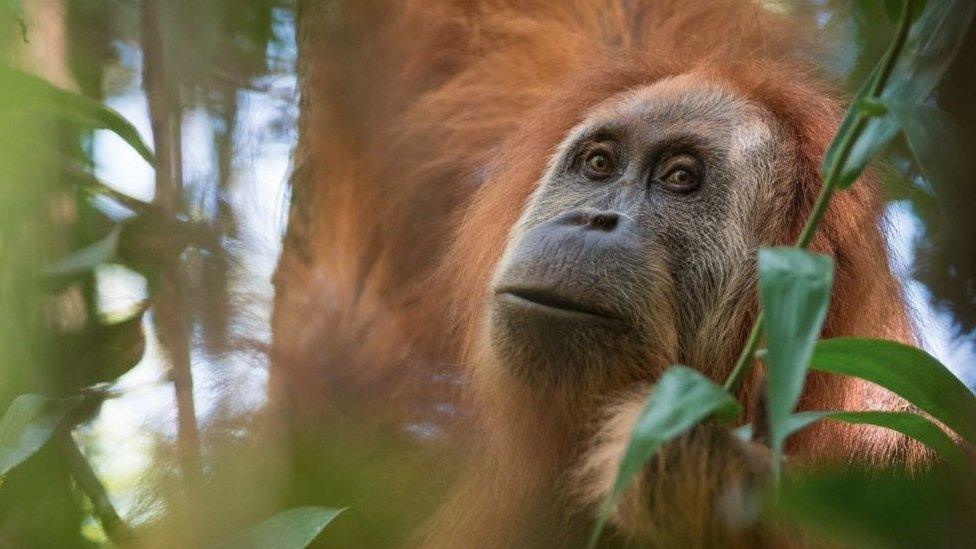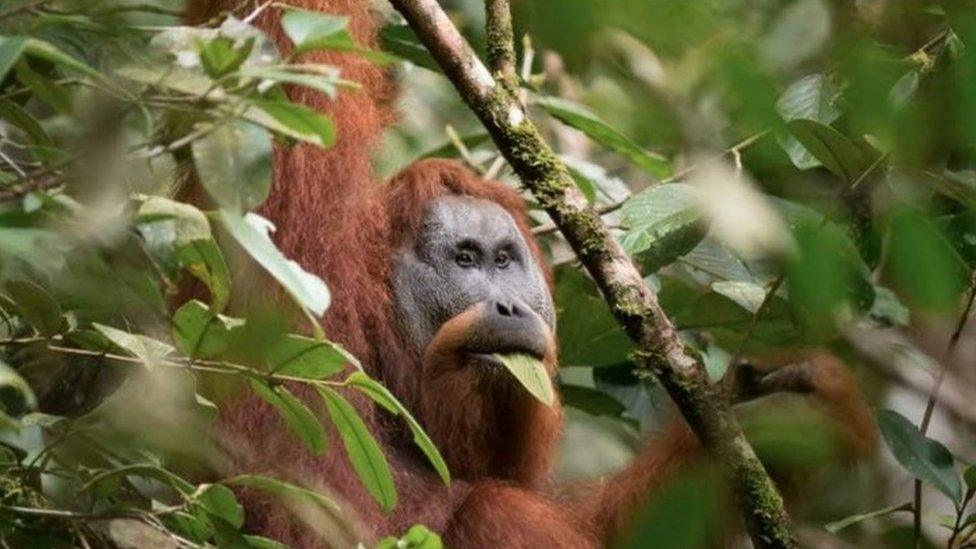World's rarest great ape faces extinction
- Published
- comments

Only 800 Tapanuli orangutans are left in their home in the forests of Sumatra in Indonesia.
Tapanuli orangutans are the world's rarest apes.
Now researchers are worried that the species is at risk of becoming extinct.
They believe the orangutans have been forced to move away from their natural homes in the forests, because of hunting and deforestation.
Tapanuli orangutans were only discovered in 2017 - the first new species of ape to be found in over 80 years!
Researchers from the University of Kent and Liverpool John Moores say that the apes have been forced to live in the mountains.
Big parts of the Sumatran forests have been turned into farmlands and plantations,
The more space the farming takes up, the further the orangutans have had to move into the mountains.

Did you know? There are 3 types of orangutans Bornean, Sumatran and Tapanuli, this is a Tapanuli orangutan
The research found that they now only have up 1,000 square kilometers of upland forest to roam. That's just 2.5% of the land they would have had 130 years ago,
A professor from Liverpool John Moores explained that Tapanuli orangutans aren't supposed to live in the mountains.
The professor said that they weren't adapted for life up high and would have better chances of survival in their natural lowland habitats.
"The apes are in more trouble than we previously thought."
Unfortunately, more threats to the orangutans' habitat are in progress.
There are plans for a road and a hydropower dam - a dam that uses water to create power - to be built through the Batang Toru forest, where they live.
These plans could put an end to hopes that 'forest corridors' could be created to allow the apes to safely travel from one area to the next, could be.
Conservationists are appealing to have the road and hydropower dam moved to a new area, to help keep the orangutans home as safe as possible.
- Published15 April 2016
- Published6 April 2017

